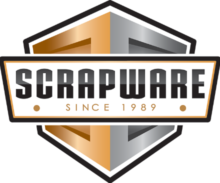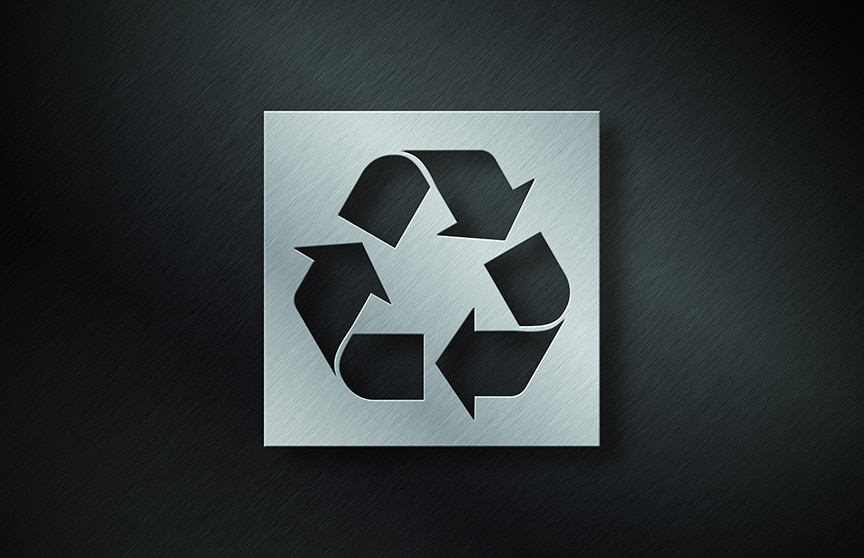Scrap metal recycling has been around for thousands of years, but the current focus on environmentally friendly manufacturing practices has increased the use of scrap metal in goods used in every part of the economy.
From construction and transportation to home décor, consumers are surrounded by items large and small made with recycled scrap metal.
Starting with your morning eggs, cookware is increasingly using recycled material for cast iron and copper kitchen tools.
Lodge Cast Iron, headquartered in South Pittsburgh, Tennessee, is one example of a company committed to improving its environmental performance by using recycled metal. The 150-year-old maker of cast iron cookware details on its website, lodgecastiron.com, how it uses recycled scrap to make new skillets, griddles, and dutch ovens. The company mixes pig iron, recycled steel and other alloys into its foundry’s electric induction furnace to create new pots and pans. Last year alone its recycling program saved 252 tons of steel shot, 424 tons of mixed metals and 250 pounds of aluminum cans, according to its website.
The automotive industry has long used recycled metal to make cars but is also seeking to increase its use of recycled material, particularly as it moves toward more lighter-weight metal used in electric vehicles.
A University of Michigan two million dollar study called the Clean Sheet Project is trying to develop more cost effective ways to increase use of recycled metals for more car parts, DBusiness reported last year. According to this Detroit business journal, the project’s goal is to “be able to use recycled metals for more parts on electric vehicles,” and “boost the production of these light weight sheet metals from recycled materials.” There is a need for a more stringent process to “ensure scrap metal can be re-used,” the project leader says in the article. The Clean Sheet Project is funded by a program in the Department of Energy, auto companies and industry trade associations. According to online news source livabout.com, about 25 percent of a car currently is made from recycled metal. As manufacturers move to incorporate more aluminum into car bodies, that percentage is expected to increase as it is beneficial to use recycled aluminum instead of aluminum made from virgin ore.
In addition to aluminum, steel is the most recycled material on the planet, according to the American Iron and Steel Institute. Both metals can be repeatedly recycled without the degradation of their properties. In fact, some recycling processes today can improve the material. An Electric Arc Furnace, for instance, can process scrap steel to increase its strength and durability, making it even more suitable for use in products such as building beams or railroad tracks. Manufacturers opt to use the recycled metal because it is less expensive than metal derived from mined ore. These facts make metal a prime candidate for extensive recycling.
How is Scrap Metal Reused to Make New Products?
What happens after discarded metal is dropped into a recycling bin or delivered to scrap yards? A multi-step process takes place to reclaim the valuable metal. After the first step, which is collection, the material must be sorted. Aluminum, copper, steel, brass, iron and other metals collected at a recycling center must be separated using magnates and other technology. The separated material is then processed, usually in large industrial shredders. The processed material is then melted and/or purified before being solidified in sheets or bars for transport.
After this final step in the process, the recycled metal is ready to be used in products in the following wide variety of industries:
Construction – Recycled metal is used extensively by both the commercial and residential construction industries. It is commonly used in beams, roofing, ductwork, plumbing, and windows, among other building components.
Transportation — A high concentration of recycled metal is used in automobiles, aircraft, shipbuilding, train tracks, and bridges.
Manufacturing and Industrial — New consumer items like appliances, equipment and tools use a significant amount of recycled metal. Industrial uses include industrial and shipping containers.
Packaging — Food and beverage cans are perhaps the most widely recognized use of recycled scrap metals. This packaging is commonly fabricated from aluminum, which is the metal that benefits from the greatest recycling energy savings. Producing cans from recycled aluminum saves 95 percent of the energy that would be otherwise needed for using non-recycled material. Aluminum can go from your curbside recycling bin back to a grocery store shelf in about sixty days!
Home Furnishings — Indoor and outdoor furniture like tables, lamps and chairs; lighting fixtures, decorative metalwork like banisters, and office supplies like file cabinets are all manufactured from recycled scrap metal.
Who Benefits?
New, lower-priced products are not the only benefit of recycling scrap metal. Recycling this material has numerous environmental benefits. Primarily, recycling scrap metal keeps the material out of landfills, where it can leach chemicals into the soil and groundwater. Additionally, the metal recycling industry uses far less energy to transform scrap metal into a usable material than it would to process metal from mined ore. Using scrap metal reduces the need for mining new “virgin” material, thereby conserving natural resources and not disrupting land and natural habitats. Reducing the use and cost of energy is better for the environment but it also holds down manufacturing costs which passes on savings to consumers.
Although metal is one of the most commonly recycled materials today, only about 30 percent of used metal actually makes it into the recycling process. With the overwhelming benefits to consumers, manufactures and the environment, there is widespread agreement that we should all strive to increase metal recycling.
About ScrapWare Corporation: Since 1989, Rockville, Maryland-based ScrapWare Corporation has been the software of choice for the recycling industry. Its ease of installation and simplicity saves users time and money, while helping them achieve compliance and maintain accurate business insights. With state-of-the-art functionality that‘s tailored to each organization’s unique requirements, ScrapWare is an advanced dynamic software solution that alleviates the most pressing recycling industry worries. For more information, please call (301) 517-8500 or visit https://www.scrapware.com/.


